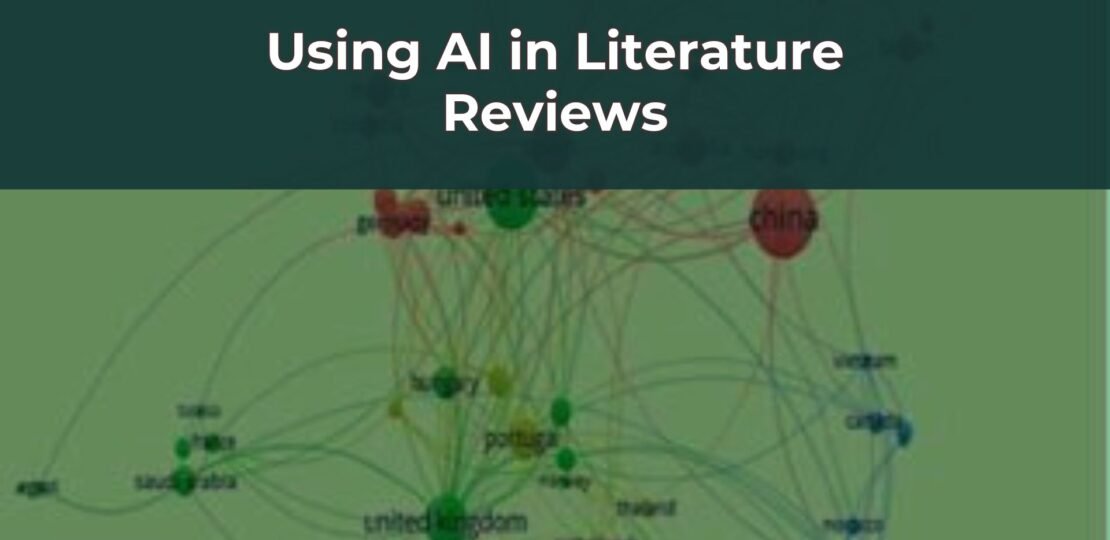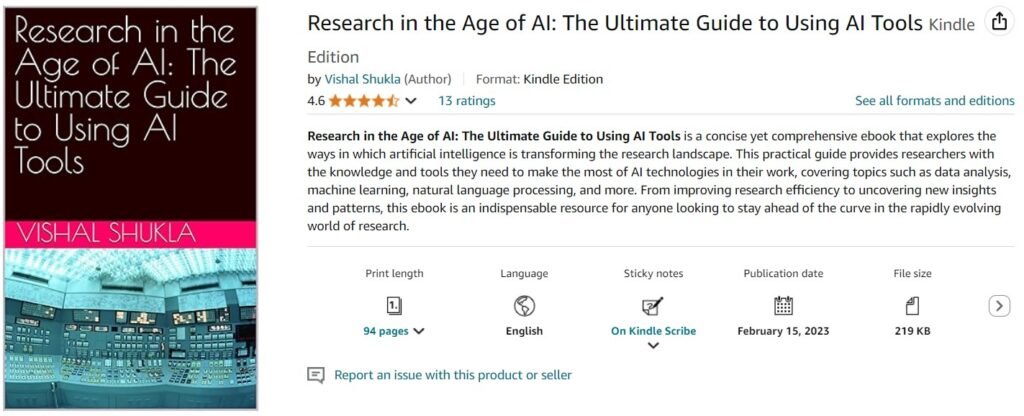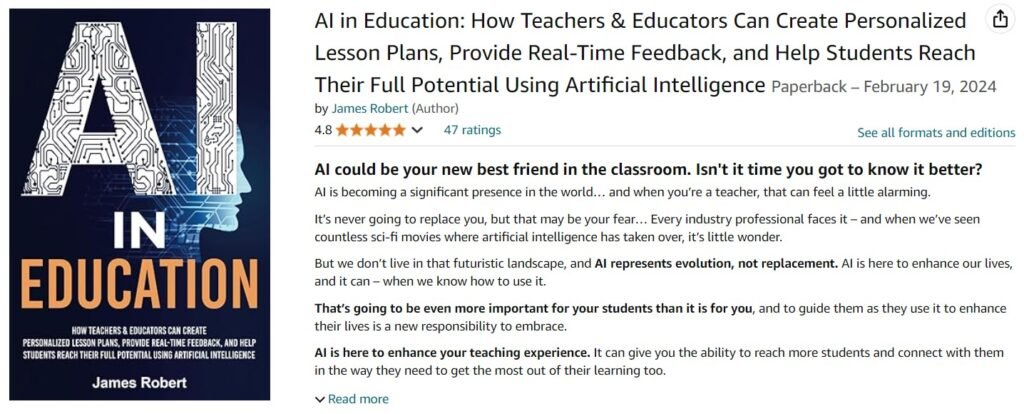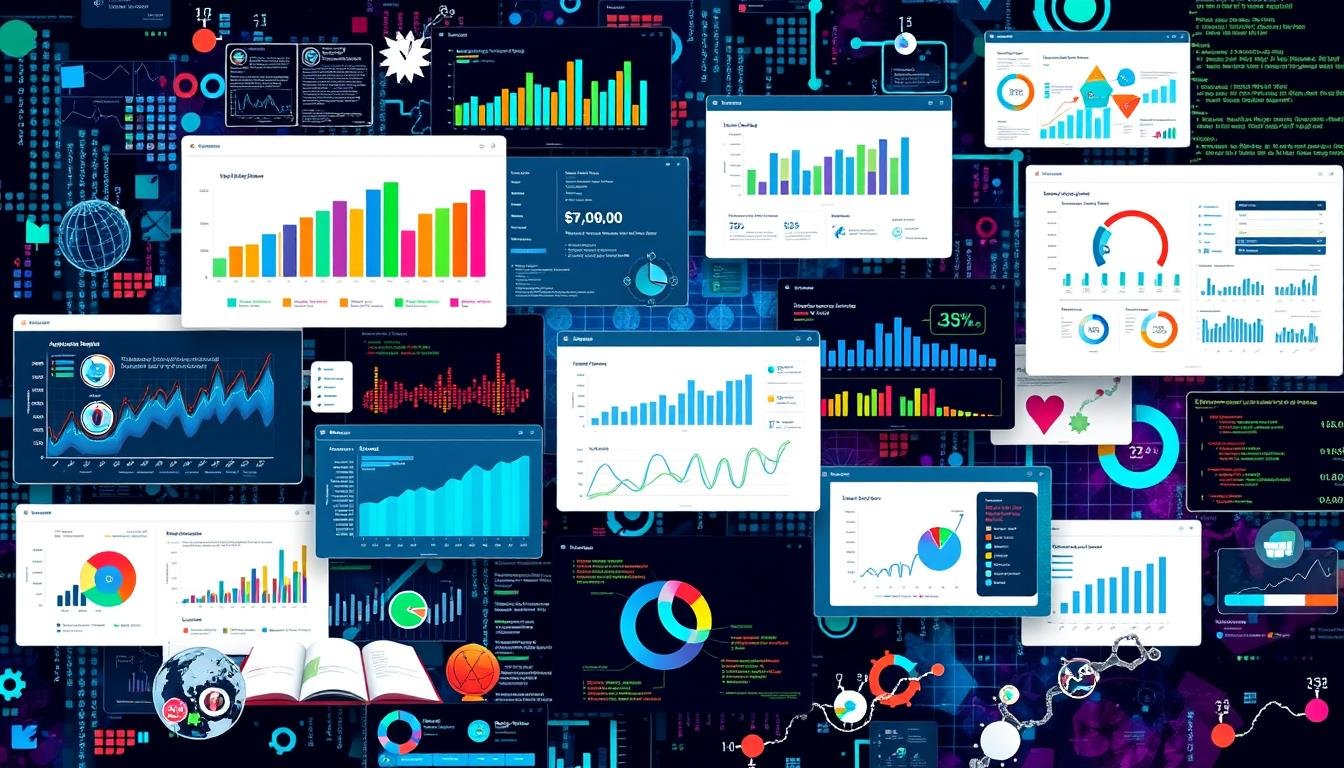How Better Is Using AI in Literature Reviews
September 15, 2024 | by Jean Twizeyimana

Imagine sifting through thousands of academic papers in minutes, extracting critical insights with laser precision. Sounds like a researcher’s dream, right? Well, pinch yourself because it’s not a dream – it’s the reality of AI-powered literature reviews in 2024!
Surprisingly, research indicates that 80% of the time is spent merely reading and categorizing information when working on a research project. That statistic is set to be eliminated by artificial intelligence. However, researchers are turning to artificial intelligence to help them conduct their literature reviews in the modern world. Here, you will find information on how artificial intelligence affects the research world. From state-of-the-art technologies to enhancing results, it is for you; let the journey begin that will transform your perspective toward academic research. I want to revolutionize the review section.
The Traditional Literature Review Process: A Time-Consuming Endeavor
Before we dive into the AI revolution, let’s remind ourselves of the traditional literature review process:
- Defining research questions
- Searching for relevant literature
- Screening and selecting papers
- Extracting and synthesizing data
- Analyzing and interpreting findings
- Writing the review
Sounds familiar? It’s a process that can take weeks, if not months, if you’re lucky enough to avoid the common pitfalls of information overload and human error.

Using AI in Literature Reviews: The Game-Changer
Enter the hero of our story: Machine learning. AI-based literature review tools are coming to the rescue, equipped with machine learning and natural language processing tools that would leave many researchers weak.
These intelligent assistants can quickly compute based on millions of data and correctly interpret academic texts’ meanings. It is like having a never-ending research assistant who does not need a rest, does not nag, and has encountered every paper written on the topic.
The advantages over traditional methods are clear:
These advantages include the power to recognize patterns and affinity that human conduct may be incapable of recognizing.
Lightning-fast processing of thousands of papers
Objective analysis that minimizes human bias
Comprehensive coverage that leaves no stone unturned
Using AI in Literature Reviews: Key Benefits
- Lightning-Fast Information Processing: AI can analyze vast amounts of literature in a fraction of the time it takes a human.
- Improved Accuracy: Say goodbye to human errors from fatigue or oversight.
- Comprehensive Analysis: AI can process a much larger volume of literature, ensuring you don’t miss crucial papers.
- Pattern Recognition: AI excels at identifying trends and connections that might escape human notice.
- Time-Saving: When employing AI, the work is done for you in the background, excluding repetitive tasks; you can then find opportunities at the analysis and interpretation level.
AI-Powered Tools for Literature Reviews
Are you excited to get started? Here are some popular AI tools that are making waves in the research community:
- SciSpace: Offers AI-powered literature search and paper summaries.
- Iris.ai: An AI science assistant that helps with literature exploration and summarization.
- Scite.ai: It uses AI to show how scientific articles have been cited, helping to understand their impact and reliability.
- Elicit An AI research assistant who can help formulate research questions and find relevant papers.
- Semantic Scholar: Uses AI to help you discover and understand scientific literature.
- ResearchRabbit: It uses AI to help researchers discover relevant literature and visualize research landscapes.
- Scholarcy: An AI-powered article summarizer that breaks down academic papers into critical elements.
- Connected Papers: Utilizes AI to create visual graphs of academic papers, showing relationships between studies.
- R Discovery: An AI-driven literature search engine that helps researchers find relevant papers quickly.
- Paper Digest: It uses AI to summarize academic papers and generate literature reviews automatically.
- SciSpace: Offers AI-powered literature search and paper summaries (Watch this Video for More Insights.)
The list of online tools for customers is not exhaustive, and these are just a few of them. With the development of AI technology, profound tools are probably still waiting for people to discover and utilize them.
Using AI in Literature Reviews: Real-World Applications
But don’t just take my word for it – AI is already making waves in fundamental research. Here are a few examples:
- A medical research team used AI to review over 100,000 clinical trials in just two weeks, a task that would have taken months using traditional methods.
- Environmental scientists employed machine learning to analyze decades of climate research, uncovering previously overlooked patterns in global temperature data.
- Sociologists utilized AI-powered text mining to synthesize findings from thousands of qualitative studies on urban poverty, leading to new insights for policymakers.
The results? It resulted in enormous time and resource gains, which enhanced the quality of the reviews and issue identification in ways that might not have been noticeable when employing conventional methodologies.
Using AI in Literature Reviews: Potential Limitations and Concerns
While AI offers tremendous benefits, it’s not without its limitations:
- Quality of Input Data: As of this statement, the application of AI is similarly only going to be as good as the data it was trained on.
- Lack of Human Intuition: It was brilliant in a way, but AI could miss out on some threads that a human researcher would not.
- Over-Reliance Concerns: Conduct makes it pretty apparent that researchers could become overly dependent on AI tools.
Using AI in Literature Reviews: Best Practices
To make the most of AI in your literature reviews:
- AI should be used not as a replacement for human analysis but as an addition to it.
- Crosscheck what you are generating with AI with your rational mind.
- Another way is to keep current with the latest tools and strategies for effective artificial intelligence use.
- Ensure the reader knows you used AI tools in your methodology.
The Future of Using AI in Literature Reviews
As exciting as the current AI landscape is, the future promises even more revolutionary changes:
- Predictive analytics that can suggest promising research directions based on current trends
- AI-assisted peer review processes that streamline publication and improve quality control
- Intelligent research collaboration tools that connect researchers across disciplines and continents
- AI-driven research impact assessment that goes beyond simple citation counts
To prepare for this AI-integrated research landscape, start familiarizing yourself with AI tools now. Experiment with different platforms, attend workshops, and stay open to new research methods.
Conclusion
Therefore, what has been mentioned above is a new approach to implementing literature reviews and a new conception of the entire research process in general! From cutting the time taken during reviewing to revealing many links between different aspects in seas of data, artificial intelligence is gradually becoming relevant in the investigations conducted by investigators in all fields.
Remember, AI is a tool; therefore, it can be/ is helpful, though it cannot be considered a silver bullet. However, the navigating of these academic bare boats or ships as if they were vessels continues to be done by artificial intelligence. Here, the human ingredient in critical thinking, experience, and instinct comes only partially. As we sail into this exciting future, one thing is clear: As the boundary shifts between the human and the mechanical, the two work hand in hand to open up more frontiers of information.
So now, are you willing to apply AI in literature reviews? Okay, I will go with the change, which is very frequent in any field of learning. Again, they said welcome to the world of research and let AI help you in this new paradigm shift in research. The next revolution could be as easy as a Google search or an output of the ML literature review!
For more tips on AI-powered research, check out Revolutionize Your Research: Machine Learning Survey Analysis in 2024.
Try AI Tools in Your Research:
1. SciSpace (for Literature Reviews)
- Monthly Subscription: Get 20% off with the code
JEAN20Try SciSpace - Annual Subscription: Get 40% off with the code
JEAN40Try SciSpace
2. Elicit (for Formulating Research Questions and Finding Relevant Papers)
Related Articles
- Exploring The AI Qualitative Data Analysis in Surveys Now
- Revolutionize Your Research: Machine Learning Survey Analysis in 2024
- Latest AI in Survey Research: From Design to Analysis
- The Ultimate Guide to AI in Survey Research
- The Latest AI Sentiment Analysis Techniques for Survey Responses
- How To Overcome Survey Data Bias Using AI
- How To Leverage Natural Language Processing (NLP) for Open-Ended Survey Questions
AI and Machine Learning Tools
- Hands-On Machine Learning with Scikit-Learn, Keras, and TensorFlow
- Artificial Intelligence: A Guide for Thinking Humans


Try AI Tools in Your Research:
1. SciSpace (for Literature Reviews)
- Monthly Subscription: Get 20% off with the code
JEAN20Try SciSpace - Annual Subscription: Get 40% off with the code
JEAN40Try SciSpace
2. Elicit (for Formulating Research Questions and Finding Relevant Papers)
RELATED POSTS
View all











![MOUNT-IT! Sit Stand Monitor Desk Mount [Fits 32" Screens] Height Adjustable, Full-Motion Articulating Arm with Keyboard Tray and Cable Management (Black)](https://jeantwizeyimana.com/wp-content/uploads/2024/09/Sit-Stand-Monitor-Desk-Mount-Height-Adjustable-Full-Motion.jpg)



